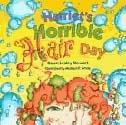Haiku: In Brief
by Dawn Lesley Stewart
Haiku is a short unrhymed poem
strong in imagery. Basho, a master poet from seventeenth century Japan, is
considered the "father" of haiku. He refined haiku, bring
simplicity and elegance to the form. If written correctly, haiku captures
the essence of a moment and triggers a response within the reader.
SYLLABLES
English Haiku are usually written in three
lines (5 syllables in the first line, 7 syllables in the second, and 5
syllables in the third). The Japanese language is much different than
English, so Japanese syllables are shorter than their counterpart words in
other languages. This is one reason why translated haiku is found in
different lengths ... sometimes Japanese haiku translated into English is
written on one line, or several lines but not in the 5-7-5 pattern.
NATURE’S WORDS
A haiku’s words are rooted in nature and
present an observation to the reader who then interprets the meaning
according to his own experiences. Most haiku include at least one word
that relates to a season or nature. This word can be as obvious as
"spring" or "autumn" or as subtle as
"snowflake," "butterfly" or "seed". The poem
does not have to be about nature, but the word is planted within the poem’s
context so the reader knows the season.
SIMPLICITY
Forget simile, metaphor, personification. Write about a
specific event or observation. Haiku is a breath of wind, capturing a
moment’s essence using simple, direct wording. Evoke the senses of
sight, sound, smell, taste, touch. The poet’s feelings reach through the
words to the reader, awakening a sense of awareness or revelation.
WHY WRITE HAIKU
Haiku offers a window into Japanese
culture, and reading about this form reveals the influences behind the
words. On a personal note, I find writing haiku challenges my creativity.
Choosing words that convey specific meaning is an excellent exercise.
Writing haiku focuses the writer to perfect tight writing. Haiku is an
elegant yet simple form of expression, which distills a specific moment in
time ... and time is well-spent writing it.
HAIKU BY DAWN LESLEY STEWART
sunrise heron lands
deep in neighbor's man-made pond
goldfish speared, pilfered
purple martin house
twelve-hole-ritzy bungalow
sparrow squatters rule
sun-drenched cat dozing
birds glide-land feeder perched
eyes closed, thrashing tail
orbed yellow moon
reflected water ribbons
mallards sail moonlight
Copyright 2001 Dawn Lesley Stewart
Printer Friendly pdf of article
All rights reserved. You may print this article for personal use. No part of this work may be copied, distributed or used in any way without written permission from the author.
|






